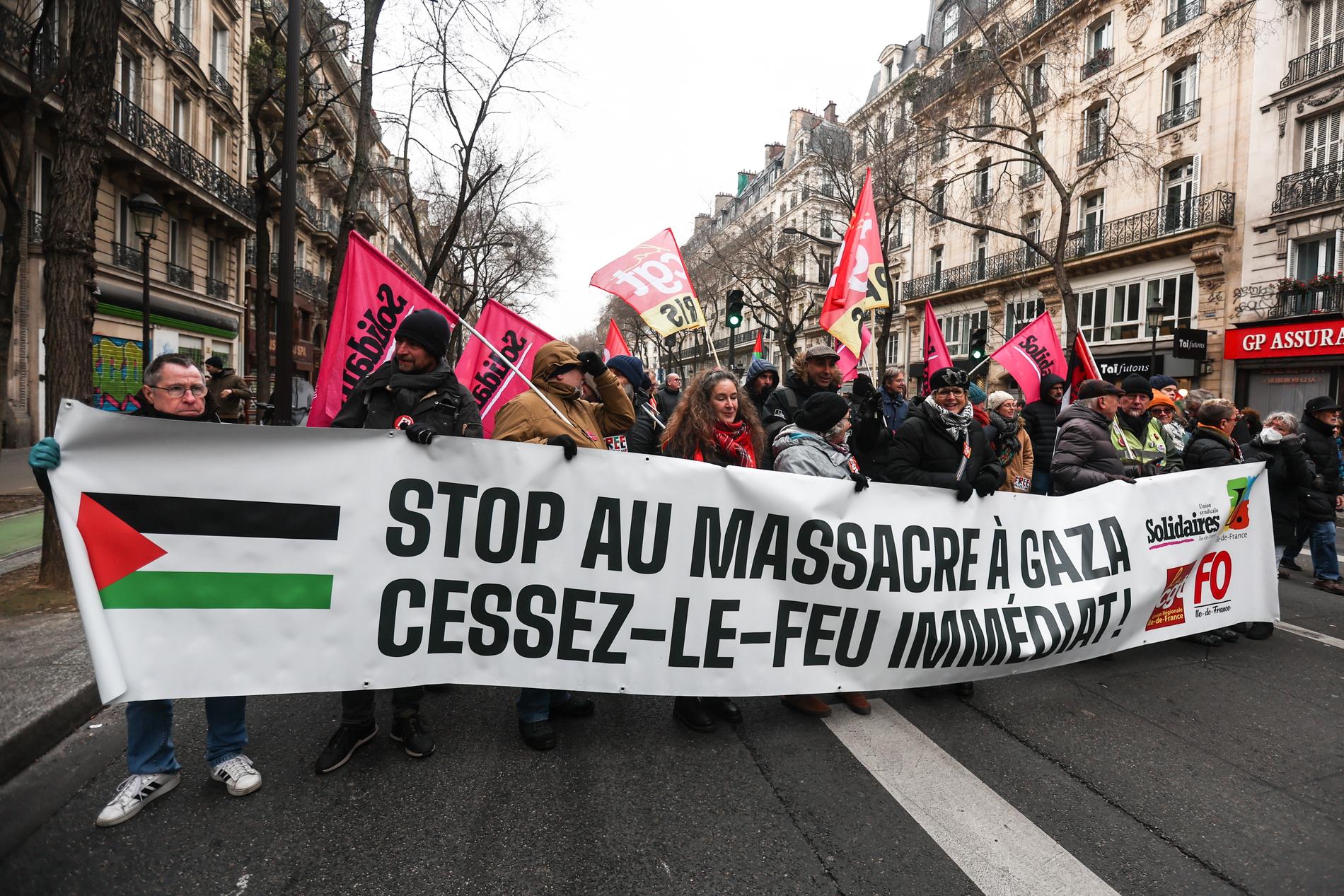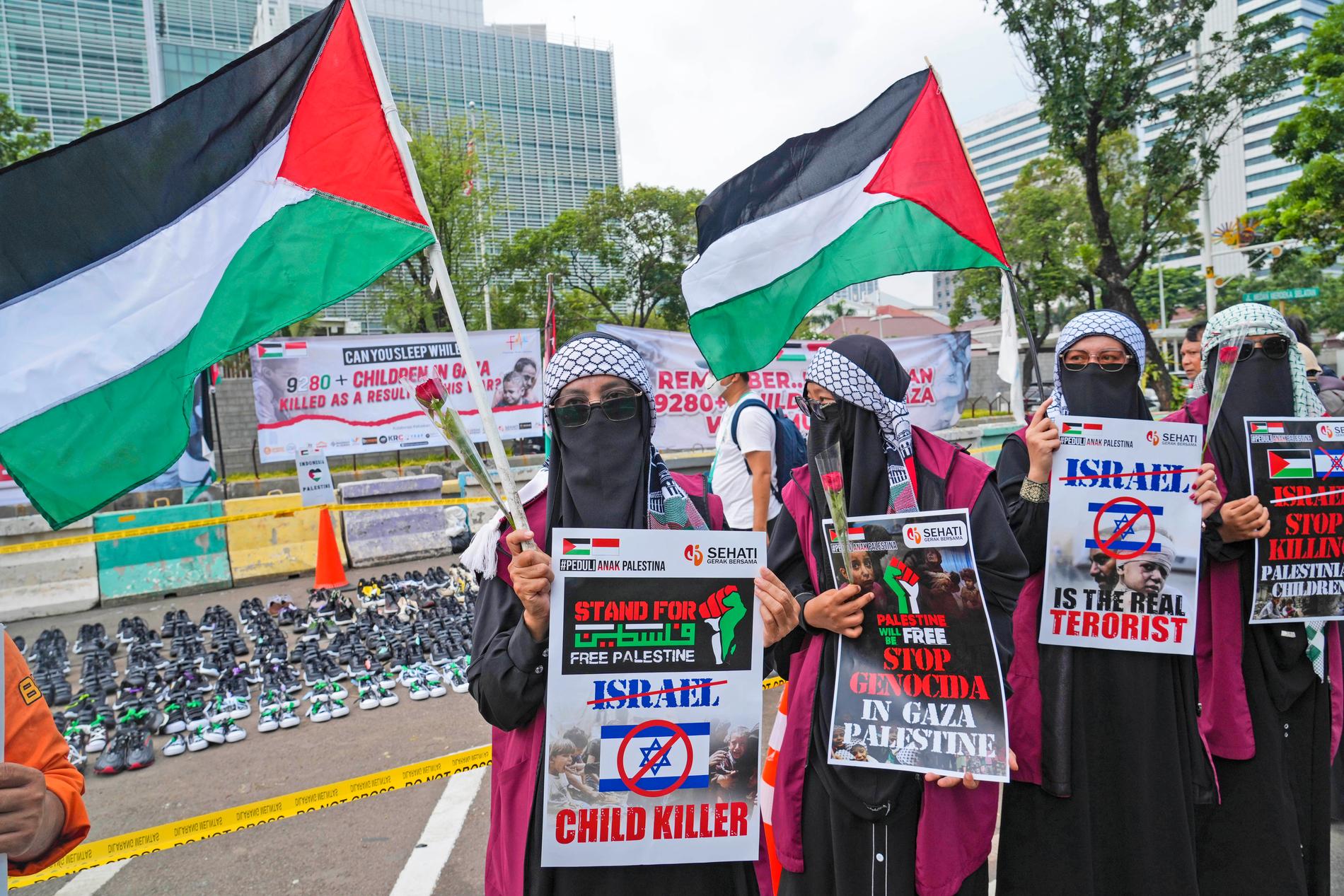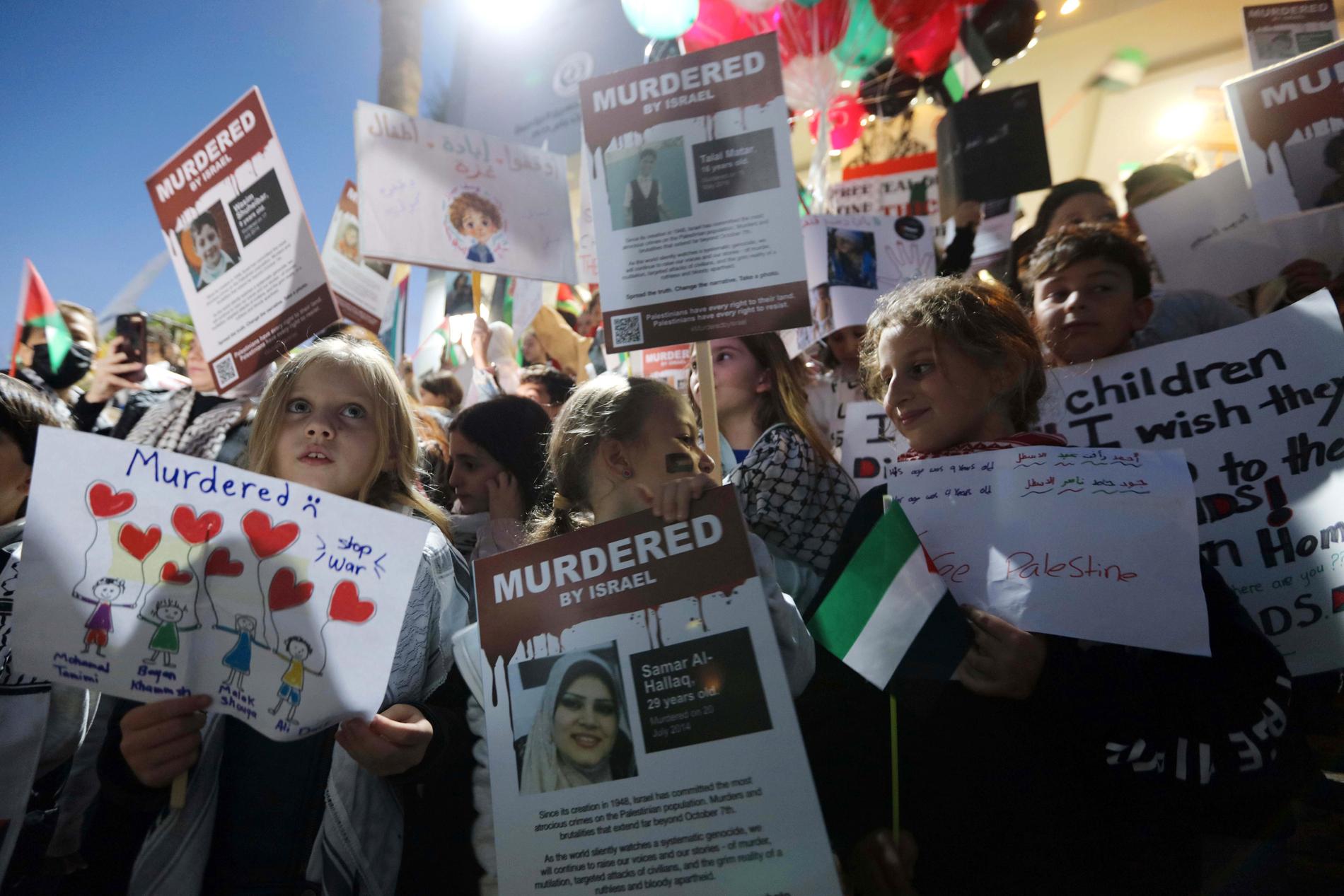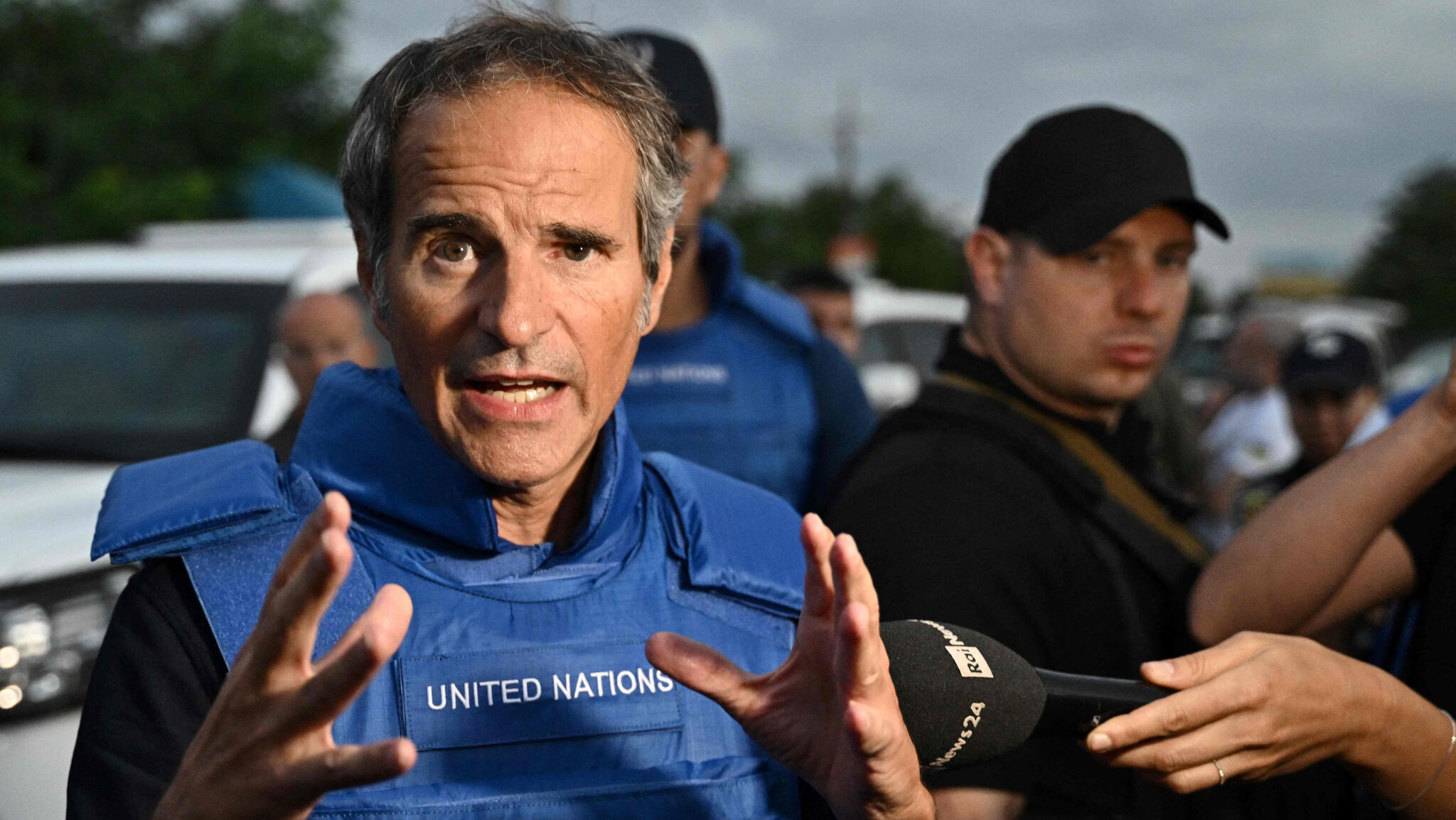
No matter how much the West criticizes double standards, we must take these criticisms seriously.
Cielo Tarraco, Author and political scientist at Khawater Agenda
In an interview with Al Jazeera, European Union Foreign Minister Josep Borrell was asked whether Israel was committing war crimes in Gaza.
He replied that he was not a lawyer, but that this matter should be investigated further. But when asked about the Hamas attack on Israel on October 7, he was quick to stress that it was a war crime.
This led to accusations of double standards, and the video was circulated virally in the Middle East and among Palestinian activists in the West.
There are many videos being shared that put Western politicians in a bad position.
Many of the videos are debatable, but the question is why is the West accused of double standards regarding the Gaza war? What is the consequence of this for Western influence at the global level and the integration of Muslims here at home?

One common counterargument against accusations of Western double standards is to point to authoritarian regimes that are much worse in this regard. For example, Islamic countries can be hostile to what they call “Islamophobia” in Western countries while at the same time ignoring the systematic persecution of Uyghur Muslims in China.
This objection has much to offer, but authoritarian regimes engage in classic realpolitik. When they first raise human rights issues, their credibility is so low that they are expected to walk through their door first.
It becomes ironic when, for example, Iran is forced to lecture other countries on equality issues during UN Human Rights Council meetings.
On the other hand, Western countries tend to justify their realpolitik with moral arguments.
Even the United States' illegal invasion of Iraq in 2003, which cost hundreds of thousands of lives, was partly justified by the desire to promote democracy in the Middle East.
Moreover, the West often adopts a truly idealistic foreign policy with a clear focus on human rights. Therefore, expectations become higher, and disappointment increases, when Western responses to serious violations against Palestinians are relatively mild.
A clear example of this is when Western countries vote against or abstain from voting for temporary humanitarian ceasefire demands in Gaza at the United Nations. A similar humanitarian catastrophe elsewhere, with thousands of children killed, would have drawn strong reactions and condemnations from Western countries.
The UN vote can be interpreted on an individual country basis, but many are trying to come up with general explanations for the pattern of reaction in the West.
Turkish President Recep Tayyip Erdogan is one of them. He stated during a speech in the Turkish Parliament that Turkey has no debts to the Jews, and therefore the country can be clear in its criticism of Israel.
According to Erdogan, the West is showing restraint towards Israel because of its feelings of guilt associated with the treatment of Jews during World War II. In this way, Erdogan indicates that the Palestinians are today paying the price for this historical burden in Europe.
While it is true that European countries have a sense of guilt, they also have a deeper understanding of the Jewish experience after the terrorist attack on October 7, 2023 than Erdogan and many other world leaders do.
This attack was the most traumatic suffered by Jews since the Holocaust. One of the main reasons for the establishment of the State of Israel was precisely to give Jews a safe homeland after all the persecution they had been subjected to throughout history, culminating in the Holocaust.

This foundation was seriously challenged when Hamas slaughtered hundreds of Jewish civilians inside Israel on October 7.
But then comes the big but here. Israel's legitimate counter-reaction against the massacres committed by Hamas loses its legitimacy when Palestinian civilians become the greatest victims.
The attack on Gaza appears to be collective punishment against a population already severely tested in long-term isolation.
The death toll speaks for itself. In just three months, more than 23,000 people were killed, including thousands of children. The stories and pictures we get from there are heartbreaking.
Accusations of Western double standards are not new, but they are gaining increasing resonance in light of the war in Gaza. One consequence is that the geopolitical gap between the West and the Global South is widening. This, in turn, further weakens the West’s influence and credibility at the international level.
If countries of the Global South feel that their views and concerns are being ignored by the West, they will become less receptive to Western appeals on issues such as the war in Ukraine. Or when we address human rights violations in other parts of the world.
It is also possible to undermine the international legal order if we imagine that it applies only to a select group of states.
“The West has lost all moral credibility,” wrote prominent Norwegian physician and social theorist Waseem Zahid on Channel X.
This brings me to the consequences that Western double standards can have on the relationship between Muslims and majority communities in Western countries.
This becomes clear when observant Muslims and others who wish to protest abuses in Gaza are denied the right to demonstrate in countries such as France and Germany.
This can reinforce feelings of discrimination and double standards, and contribute to increased polarization. In the worst case, it may even reach extremes.
The third consequence of all this is that Western countries may suffer from weak power in the fight against anti-Semitism.
It is unfortunate that we are facing increasing anti-Semitism in Europe, including Norway. To prevent the war in Gaza from affecting Jews in Europe, a concerted effort against prejudice and hatred will be required.
It involves working with Muslim communities, which in turn requires a high level of trust and willingness to cooperate.

The world has become more interconnected today, and we must realize that foreign policy can also have such domestic political consequences. But regardless of these consequences, we must act on principle in the face of violations of humanitarian and international law.
We cannot allow Netanyahu's Israeli government to get away with its actions, which strongly condemn Russia, for example.
That is why I am happy that Norway stands out among Western countries in supporting the above-mentioned UN resolution on a humanitarian ceasefire. In addition, Norway distinguished itself by clearly criticizing the violations in Gaza and demanding an end to the war.
In a world where the geopolitical balance of power is shifting and unpredictable, it is more important than ever for the West to regain its credibility by acting more consistently and principled.
To enhance our ability to promote a more just global order.
Although accusations of double standards may often be exaggerations or propaganda attacks against the West, this time they resonated with many who are not usually anti-Western.
In other words, there are several good reasons to take these accusations seriously and increase pressure on Israel to stop the suffering in Gaza.

“Coffee trailblazer. Certified pop culture lover. Infuriatingly humble gamer.”



